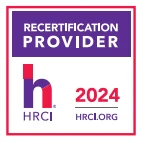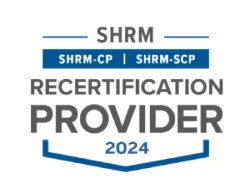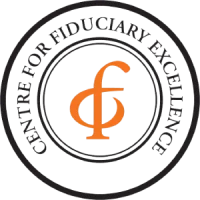NJ Consumer Protection Act goes into effect on August 29, 2018

On August 29th, 2018, the “Out-of-network Consumer Protection, Transparency, Cost Containment and Accountability Act” will go into effect. All fully-insured health plans must follow the New Jersey state mandate, while self-funded health plans can decide to opt-in. Innovative Benefit Planning has prepared a brief on what employers should know about the new legislation.
** What are Surprise Bills**
A surprise bill occurs when a consumer of healthcare goods and services visits an in-network provider and receives treatment from out-of-network healthcare professionals. Often, the consumer does not know that they will receive a separate bill which is above and beyond their in-network cost-sharing limit. Surprise bills are most common in ambulatory settings and emergency departments, where healthcare professionals are staffed based on patient volume. While a surprise bill can be generated from virtually any physician, in most recent years consumers have seen an increase in surprise bills resulting from an emergency department visit where treatment was performed by a specialist, like an anesthesiologist, pathologist, or pediatrician.
The concern for consumers arises because they have little say in the treatment they receive at an emergency department. When consumers of health care goods and services seek emergency treatment, often the last thought that comes to mind is whether “providers are in-network.” Although the emergency department they are visiting may be in their HMO or PPO, they still face some uncertainty concerning the treatment from the staffed attending physicians.
NJ Passes Consumer Protection Act
The “Out-of-network Consumer Protection, Transparency, Cost Containment and Accountability Act” passed on June 1, 2018, serves to protect consumers in the state of New Jersey from surprise bills by “enhancing overall consumer protections,” and clearly defining a means for healthcare billing disputes. The overall goal of this Act is to limit surprise and balance billing for consumers of health care goods and services, while reforming the third-party payment system to include (1) adequate provider and hospital reimbursements, (2) clearly defined procedures for resolution of billing disputes between providers and third-party payers, and (3) health care cost containment.
Consumer Protection from Non-Emergency or Elective Procedures
The Act requires healthcare facilities and healthcare professionals to uphold the highest duty of care by providing disclosures to consumers before scheduling an appointment for a non-emergency or elective procedure. Under the new law, providers are required to communicate whether they are participating in a member’s network and advise the member to check with all physician(s) performing the non-emergency or elective procedure to confirm they are a participating network provider. The act requires the facility to provide information to the insured for use in determining the health plans for which the physicians employed by the provider participate. If the physician is not an active network provider, and the insured knowingly and voluntarily proceeds with the non-emergency or elective procedure than he or she accepts financial responsibility for any costs in excess of the in-network deductible, copayment, and coinsurance. Similarly, if the physician is an active network provider, the insureds degree of cost sharing is limited to a copayment, deductible, or coinsurance.
Consumer Protection from inadvertent out-of-network or medically necessary services
Under the Act, certain consumers of health care goods and services are afforded more protection from unintended out-of-network usage and Emergency Medical Treatment. Under the N.J. law that goes into effect, certain groups of insureds would not receive a surprise bill or balance bill for inadvertent out-of-network services or emergency urgent medical treatment. The Act implements the following provisions to increase consumer protection from balance and surprise billing by requiring healthcare professionals to adhere to the following:
- in the case of inadvertent out-of-network services, not bill the covered person in excess of any deductible, copayment, or coinsurance amount; and
- in the case of emergency and urgent services, not bill the covered person in excess of any deductible, copayment, or coinsurance amount, applicable to the in-network degree of cost-sharing.
Employers affected by this law
Carriers will be legally required to ensure that members who utilize an out-of-network provider are not billed more than there share of in-network cost sharing when the above two conditions are met. The Law is enforceable for fully insured employer-sponsored plans. Since self-funded employer-sponsored health plans are governed by ERISA and are therefore not subject to state insurance laws, they will not be subject to this new law. However, a self-funded plan may voluntarily elect to be subject to the provisions of the new law. If a self-funded plan wishes to opt-in, the self-funded plan must “provide notice, on an annual basis” to the Department of Banking and Insurance. By opting-in, the plan agrees to all of the provisions as they apply to a fully insured group health plan, and agrees to update all documents relevant to the employer-sponsored plan.
Binding Arbitration for Fully Insured Plans
Under the new law, the provider will submit the bill to the insurance carrier for out-of-network usage as opposed to remitting a balance or surprise bill to the insured. The carrier will then determine if the provider’s charges are reasonable or excessive. If the charges are deemed to be excessive than a letter of determination must be sent to the provider. Once the letter of determination has been sent, the carrier and provider will have 30 days to negotiate a final reimbursement amount. The carrier will offer a final reimbursement amount which will be accepted or rejected by the provider. If the provider and carrier cannot agree on a final amount, then the carrier is obligated to pay the final reimbursement amount to the provider and may then initiate binding arbitration within 30 days of the final offer.
Binding Arbitration for Self-Funded Plans
A self-funded plan will follow the arbitration procedures laid out for fully insured plans unless a self-funded plan member waives participation in the default arbitration agreement. If the member opts out of the arbitration agreement, the plan member or out-of-network provider may initiate binding arbitration by filing a request with the Department of Banking and Insurance.
Under the alternative form of arbitration, “if a payment dispute is not resolved within 30 days after the plan member is sent a bill for the services, the plan member or out of network health care provider may initiate binding arbitration to determine payment for the services.” The provider is barred from initiating any form of collection proceedings until a request for arbitration is filed.
Categories
Archive







